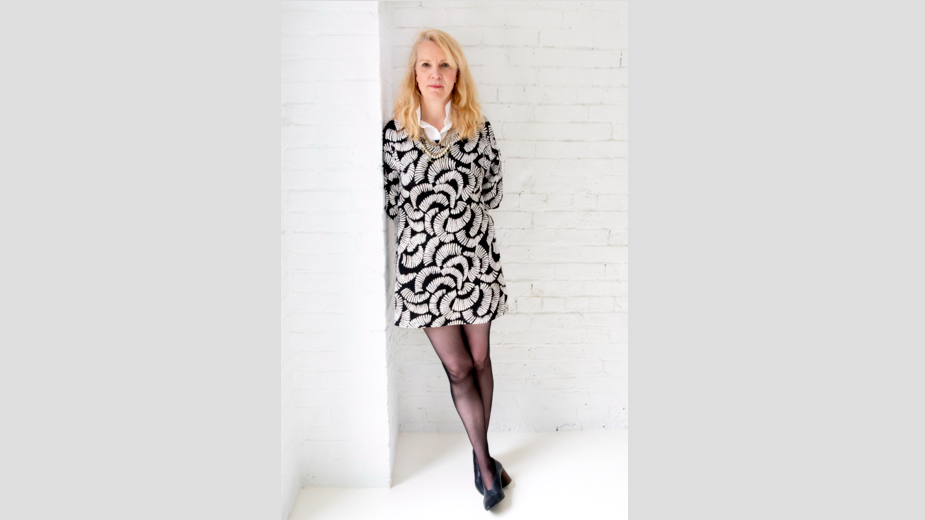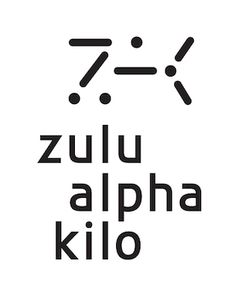
Planning for the Best: Why Maxine Thomas Finds Something to Love in Every Part of the Process

Maxine has spent her career in some of Canada's most admired agencies. Prior to Zulu Alpha Kilo, she was a partner and head of strategy at Rethink, and before that, spent 16 years as a partner at TAXI. Over the years she has worked with many of Canada's best-known companies, with national icons such as Molson Canadian and Canadian Tire, disruptor brands such as WestJet, and one-of-a-kind brands like Viagra. Her combination of business vision and an inspiring way with words has significantly contributed to some of the most admired and most effective brand campaigns of the past two decades.
Maxine's two favourite things are a business problem and a blank sheet of paper.
LBB> What do you think is the difference between a strategist and a planner? Is there one, and if so, which description suits the way you work best?
Maxine> I definitely think there’s a difference, and to me it comes down to the impact associated with each of those two terms. I see a strategist as someone who assesses a client’s situation, creates and evaluates options, and puts them into play, whereas a planner… well, makes plans. And those plans may or may not happen. I like having an impact, so I prefer to be known as a strategist.
LBB> We’re used to hearing about the best creative advertising campaigns, but what’s your favourite historic campaign from a strategic perspective?
Maxine> I have huge respect for Truth’s anti-smoking work. Its strategic brilliance was the recognition that talking to teens about how smoking is bad for their health would never do anything, but talking to them about how tobacco companies deliberately manipulate them into thinking smoking is cool would piss them off. It demonstrates genuine insight into the target, and it couldn’t happen to a more deserving industry.
LBB> When you’re turning a business brief into something that can inform an inspiring creative campaign, do you find the most useful resource to draw on?
Maxine> Every client and campaign is different, so there’s not really a single source that works for everything. But if I were to generalise, I constantly seek out and explore information that’s new to me. Whether it’s in podcasts on subjects that I know little about, or documentaries that go into great depth on something I only have a bit of familiarity with, trying to learn something new every day (or at least every week) sparks my brain and gives me more to work with when I’m doing a brief.
I also think the way work is done is equally important to the sources that are drawn on. I’m a die-hard believer in collaboration between strategists and creative teams. To me, the best way to inspire a team is to involve them in the strategic process all the way along, because it leads to great relationships and great results. I’ve worked with Zak Mroueh - who founded Zulu - for 15 years across two different agencies, and I always brought him into the strategy process, just as he always involved me in the creative process. We have huge respect for each other’s point of view. A tight relationship between strategists and creative teams is a defining trait of Zulu, and in my opinion, it’s something clients should look for in their agency because it will always make the work better.
LBB> What part of your job/the strategic process do you enjoy the most?
Maxine> I can find something to love in every part of the process. At the beginning, diving into the brand, the category and the consumer is great because I always learn new things. At the end, I love the satisfaction of knowing I’ve helped the client move their business ahead and given creative teams the sparks they need to play with. And in what I think of as the messy middle – the stage where you have loads of info and hypotheses, but haven’t yet landed the idea - I love that moment when it suddenly clarifies in your brain and you know exactly what to do.
LBB> What strategic maxims, frameworks or principles do you find yourself going back to over and over again? Why are they so useful?
Maxine> The maxim I rely on the most has nothing to do with advertising and everything to do with human nature: a job begun is a job half done. I think a lot of younger strategists get intimidated by not having the perfect answer right out of the gate, which can cause a lot of unnecessary anxiety. If you just get started the answers will come.
In terms of frameworks or principles, the one that I always start with is a really simple one: what’s the business problem we have to solve? Really integrating that question is arguably one of the most important things a strategist does.
LBB> What sort of creatives do you like to work with? As a strategist, what do you want them to do with the information you give them?
Maxine> I love working with creatives who are as excited about the results their work creates for our clients as they are about its creative impact and originality.
What I want them to do with the info I give them is pretty simple: absorb it, explore it, and come with something that makes everyone a bit nervous about how we’ll sell it, but that we all know is the right thing to do.
LBB> There’s a negative stereotype about strategy being used to validate creative ideas, rather than as a resource to inform them and make sure they’re effective. How do you make sure the agency gets this the right way round?
Maxine> I’m fortunate to have always worked in agencies that value strategy and with clients who feel the same way, so it’s never been a challenge for me.
If someone experiencing this were to ask me for advice though, here’s what I’d say: find a project on a client who hasn’t been buying the agency’s work lately, and ask to be on the next project to help sell it. Do all the things you’d normally do to contribute to the work - figure out the problem it needs to address, find some juicy insights, and work with the team to create a setup that makes it obvious to the client they need to buy it. That should make the value and role of strategy pretty clear.
LBB> What have you found to be the most important consideration in recruiting and nurturing strategic talent? And how has covid-19 changed the way you think about this?
Maxine> Compared to many other countries, Canada is a very small market for planners. There are extremely talented people here, but the competition in recruiting them can be intense. That means you have to cultivate relationships now that may only pay off a few years in the future. And, you also have to be open to people who may not have a CV with years of traditional planning experience, but who demonstrate the curiosity, observational nature and playfulness that, in my mind, characterises great planners. When you find them, give them a chance!
Regarding covid-19, the biggest impact in my mind is on the nurturing side of the equation. Strategists spend a lot of time in their own heads, and we definitely need the opportunity to bounce our ideas off other strategists to test them out and make them sharper. That used to happen naturally in the office, but covid-19 got in the way of that. I think it’s especially important for senior strategists to find the time to work with younger strategists, to be their sound board.
LBB> In recent years it seems like effectiveness awards have grown in prestige and agencies have paid more attention to them. How do you think this has impacted on how strategists work and the way they are perceived?
Maxine> I think there could be a lot of factors contributing to that. Tighter budgets and ever-increasing competition mean agencies want to demonstrate they drive business growth, to name just a couple. As far as I’m concerned, making the case for the power of our work is something we should want to do. We put a big priority on effectiveness awards at Zulu – after all, given the emphasis as we put on building great relationships with our clients, that is what our clients are paying us for. As for the effect this has on strategists and how we’re perceived, I’d hope it would bring out a healthy dose of competitiveness, as well as pride in the impact our work can have!
LBB> Do you have any frustrations with planning/strategy as a discipline?
Maxine> There’s a stereotype that should permanently be retired about strategists being the smartest people in the room. To be fair, it’s often not the strategists who are saying that, but I think that’s arrogant and unproductive. In my opinion, it’s way more important for us to be the best listeners in the room.
LBB> What advice would you give to anyone considering a career as a strategist/planner?
Maxine> Here are three things I share with aspiring strategists.
Firstly, and others might disagree with me on this, but I think it serves aspiring strategists well to get a basic grounding in the agency life overall before they zero in on being a strategist. I was an account person for several years before I made the switch to strategy. I think it made me better at my job because I understood the entirety of how campaigns came together, and not just the strategy slice of it.
Secondly, work on as many different sectors as you can over time. I’m a big believer that every new category you get exposure to gives you new ideas and perspectives. That’s the kind of thing that wires a strategist’s brain for success.
Finally, find an agency that really understands and promotes the partnership between strategists and creative teams, because they’re the ones where you’ll do great work you can feel proud of and that your clients will love.













